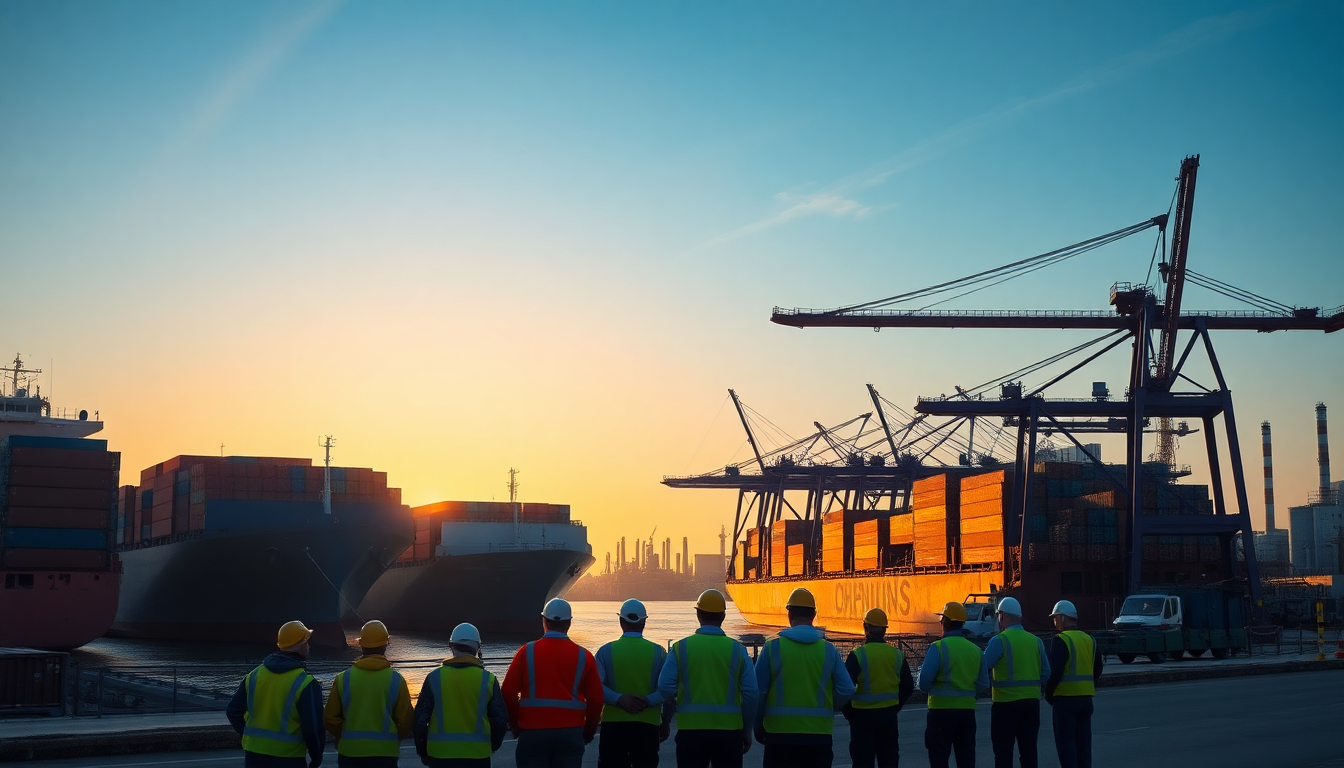Table of Contents
Have you ever wondered how a country like Germany, with its vibrant economy, impacts global trade? As the largest economy in Europe, Germany is truly at the heart of fascinating changes in international commerce. In this article, we’ll explore Germany’s evolving role in the world market, diving into the challenges it faces and the opportunities that lie ahead.
Market Overview: Key Developments and Statistics
Germany’s strength in global trade is no accident; it’s largely thanks to its robust manufacturing sector and export-oriented economy. Recent reports reveal that Germany continues to shine as a leading exporter, particularly in industries like machinery, automotive, and chemicals. In fact, German exports reached a new high in 2023, showcasing a resilient demand for its products across international markets.
But it’s not all smooth sailing. Geopolitical tensions, including trade disputes and shifting global supply chains, are forcing Germany to rethink its trade strategies. For instance, the recent tariffs imposed by the United States on certain goods have prompted a reassessment of Germany’s approach, pushing the country to explore new markets to reduce risks.
On top of that, the ongoing discussions around environmental regulations and sustainability are reshaping trade policies in Germany. The country is increasingly prioritizing green technologies and sustainable practices, which could redefine its competitive edge. Could this focus on sustainability be the key to Germany’s future success in global trade?
Analysis of Key Trade Partners and Market Segments
Germany boasts a diverse array of trade relationships, with significant partners including the United States, China, and various EU nations. Each of these markets presents its own set of opportunities and challenges. For example, while the U.S. remains a vital market for German exports, ongoing political shifts may create uncertainty in trade negotiations.
On the flip side, China is quickly becoming a crucial partner, with Germany exporting high-value goods to satisfy the demands of the growing Chinese middle class. The automotive sector is especially noteworthy here, as German manufacturers ramp up investments to meet the rising demand for electric vehicles in China. Is this a sign that Germany is gearing up to lead in the electric vehicle market?
Within Europe, Germany’s trade leadership is bolstered by its strong ties with neighboring countries. The EU’s internal market allows for seamless trade flow, but the complexities of Brexit and varying economic recovery rates among member states present notable challenges. Germany’s ability to adapt to these shifts will play a crucial role in maintaining its competitive position.
Price Trends and Investment Opportunities
The economic landscape in Germany is marked by fluctuating prices across various sectors. Recently, a surge in energy prices has driven up operational costs for many businesses, sparking discussions around energy policy reform. As companies seek to optimize their operations, investing in renewable energy sources is becoming more appealing. Could this be the moment for a green energy revolution?
For those eyeing investment, the real estate market remains a solid bet. As urbanization trends continue, cities like Berlin and Munich are seeing rising property values. The demand for both residential and commercial properties indicates a stable return on investment, making real estate an attractive sector for both domestic and international investors.
Moreover, sectors such as technology and green energy are on the upswing. With Germany transitioning to a more sustainable economy, investments in these areas could lead to significant returns, especially given the government’s commitment to achieving carbon neutrality by 2045. Are you ready to capitalize on these emerging opportunities?
Practical Insights for Buyers and Investors
For anyone looking to buy or invest, understanding Germany’s trade environment is essential. Conducting thorough market research and staying updated on economic policies will be key to making informed decisions. Engaging with local market experts can also provide valuable insights into emerging trends and help navigate the complexities of investment.
Additionally, diversifying investment portfolios to include sectors aligned with Germany’s economic transition, like technology and sustainable energy, can help mitigate risks and enhance potential returns. The current economic climate is ripe with unique opportunities for proactive investors willing to adapt and innovate.
Medium-Term Forecasts and Strategic Considerations
Looking ahead, Germany’s role in global trade is set to evolve as it navigates both challenges and opportunities. The increasing focus on sustainability will likely continue to shape trade policies and investor strategies, placing a spotlight on eco-friendly practices and technologies.
Moreover, geopolitical tensions will necessitate a reevaluation of trade agreements and partnerships. Germany’s ability to stay agile and responsive to these changes will be critical in maintaining its competitive edge in the global marketplace. How will Germany manage to balance its traditional strengths with the need for innovation?
In conclusion, Germany’s emerging role in global trade is filled with both promise and uncertainty. By leveraging its strengths and adapting to the changing landscape, Germany can position itself as a key player in international commerce. What are your thoughts on the future of Germany in the global market?


